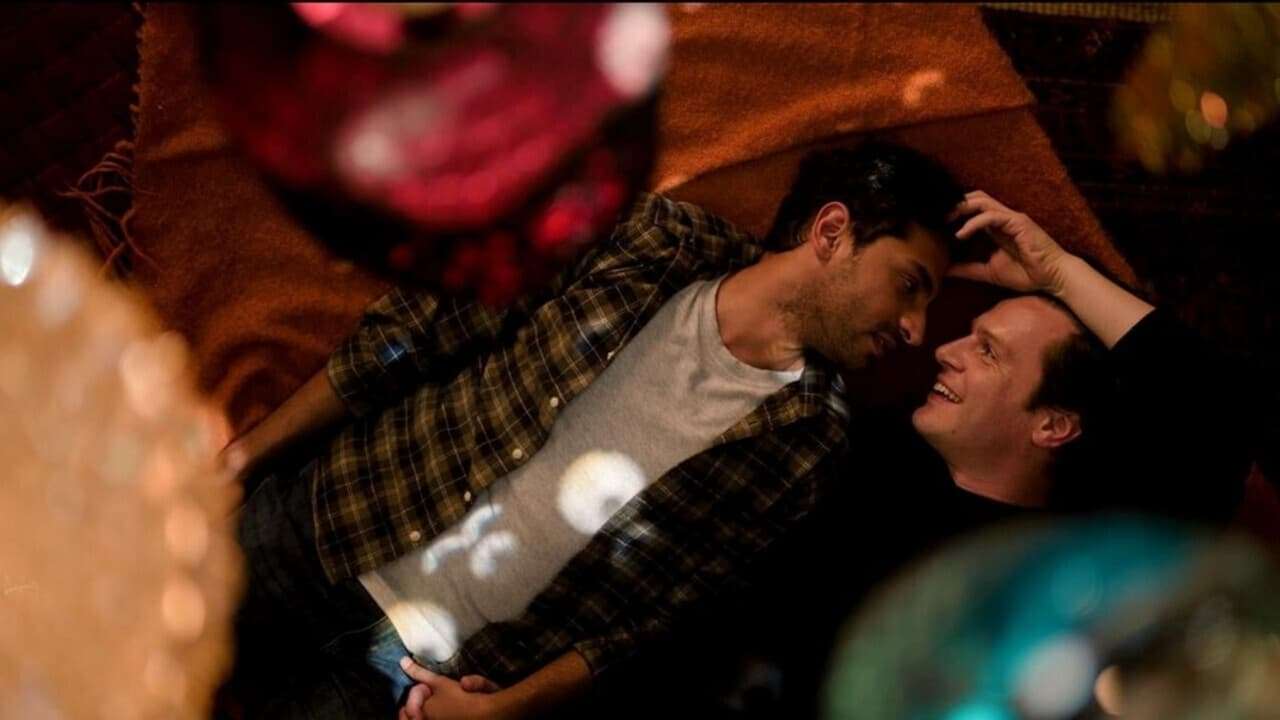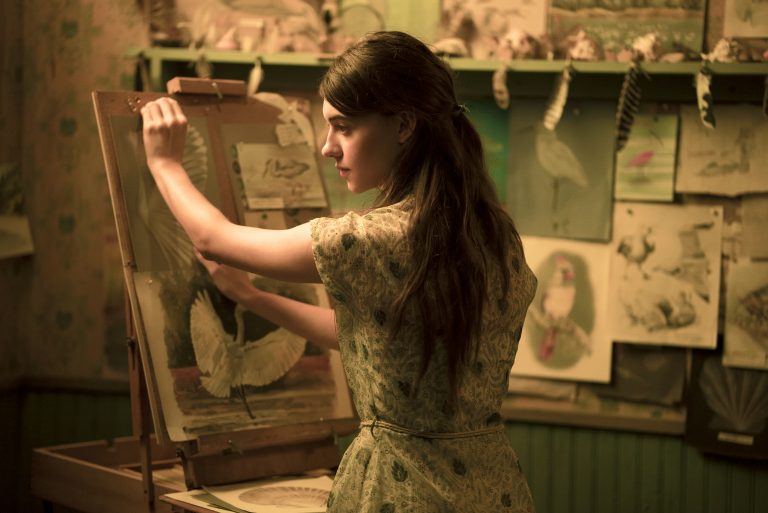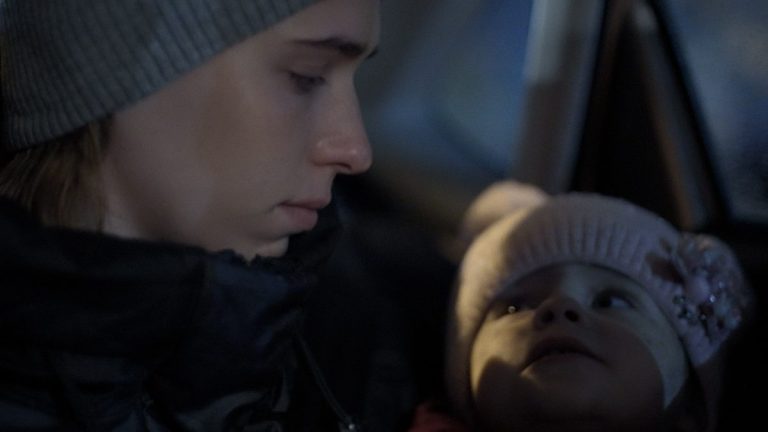Indian marriages go beyond individual assertions of love to include the jostling familial structures of acceptance and refusal. Then there’s the pervasive influence of Bollywood. Bollywood and Indian culture are so enmeshed the two invariably cast themselves against identity and what celebration of oneself may resemble. The yarn of resistance to private desire gets scrambled furthermore once queerness enters the fold. Roshan Sethi’s new film, “A Nice Indian Boy,” unravels this twine, weaving between the modest and spectacular.
Naveen (Karan Soni, brilliantly awkward, frustrating, and endearing in equal measure) has almost reclined into accepting he, being gay, may never get to have his own big, fat Indian wedding. He’s lonely, terribly tongue-tied at the slightest sight of any probable romantic connection. He has built all these guardrails around him, nervous to admit his desire. As reserved as he is about expressing his feelings, a photographer who instantly captures his heart, Jay (Jonathan Groff, turning on full-throttle a charm offensive) is unabashed in his declarations. The minute the two lock their eyes and run up against each other again at Naveen’s workplace, frissons of attraction fill the space between them.

Both Naveen and Jay are raised by Indian parents. Their access to Bollywood-fed fabulous displays of romance and triumph has, of course, spawned its own set of expectations. The 1995 classic, “DDLJ,” is smartly hewn into the fabric of their relationship, arcing alongside all its hurdles and coming together. A jangling cowbell’s intent from that film, connoting Simran’s (Kajol) fulfilled anticipation of Raj (Shah Rukh Khan) as she waits for him in a yellow mustard field, is transplanted here for the queer couple.
Based on Madhuri Shekar’s play, the sparkling screenplay by Eric Randall mines a depth of understanding from culturally coded expectations passed over generations. As with any South Asian, particularly Indian social mores, the vocabulary of parental love braids the child within a well-intentioned, stifling I-know-best limit. Rules of conducting life and designing marriages seep into the very DNA of family structures, eventually practiced by the same ones who’d suffered its brunt. Pushed into an arranged marriage, the love between his parents, Megha (Zarna Garg) and Archit (Harish Patel), grew quietly, stronger than they could have imagined. Since their marriage ultimately worked out, they too see it as fundamental, prodding their daughter and Naveen’s sister, Arundhati (Sunita Mani) towards the same. Any alternative route summons the fear of what others might whisper.
Read More: 20 Important Queer Movies Of The 20th Century
This has led to long-standing grievances Arundhati has against her parents. Coupled with their invasive elbowing questions about when she will have a child, she is enraged all the more since they seem to let Naveen off the hook too easily. His family knows he’s gay but has never seen him be ‘gay’ i.e., bring a boyfriend home. Naveen is deeply wary of his parents’ reactions. He keeps deferring Jay’s introduction to his family, cautioning him against their conservative nature. He gives Jay an entire litany of things he can expect and what he must avoid. With his adoptive parents dead, Jay yearns for a family, hence dogged about securing Jay’s. On the other hand, Naveen’s mother panics, before the meeting with Jay, about the proper protocol of the situation.
With calm maturity and keening perception, “A Nice Indian Boy” walks the knife’s edge between, as Naveen confesses tellingly in a scene, not wanting something and being afraid to want it. Where does truth sit? Naveen’s parents, though, aren’t at all determinedly homophobic. They are just trying to figure out, in their own effacing, amusing ways, how to bridge the gap between alienation and empathy towards Naveen’s queerness. They generously consume doses of raunchy queer reality TV to understand their son better.

In a gloriously directed scene where Naveen finally brings Jay home, Sethi cranks up the awkwardness and desperation to fix the disaster but exacerbates it further. The ensemble crackles with wit, sharp comic timing, and a whole gamut of unfamiliarity, and resentment bobbing underneath the scene. There’s such a lived-in ease and radiant energy to the performances it tides over the narrative turns which may get overly neat and amenable to quick, uncluttered resolutions.
Armed with its utterly dazzling cast, “A Nice Indian Boy” offsets the hint of templates in its writing with dollops of emotional richness. To the film’s biggest strength, Sethi drapes together a breadth of intergenerational understanding, as well as illuminating how it chafes against modern frameworks of existence. Lots of differences may be there between Naveen’s dad and Jay, in how they view the world. However, cutting through it all, in the film’s standout scene, hurt and rejection resonate across generations. Affective ties of belonging and intimate recognition can be forged. Fittingly, “A Nice Indian Boy” surges towards a peppy, self-aware musical climax splashily shot by Amy Vincent. The quintessential ‘bigness of love, as the film puts it, conquers all inhibitions and snags. This film is enlivening and an absolute joy.



![Lulli [2021] Netflix Review: An Unremarkable Romantic-drama despite its Engaging Parts](https://79468c92.delivery.rocketcdn.me/wp-content/uploads/2021/12/Lulli-2021-Netflix-768x384.jpg)
![Don’t Think Twice [2016] : Being in a well isn’t that bad!](https://79468c92.delivery.rocketcdn.me/wp-content/uploads/2016/11/dont-think-twice-99ddb592-9a20-4056-aa36-ced9ae9ea4df-768x403.jpg)
![Minnal Murali [2021] Netflix review: Basil Joseph’s home-grown, ambitious superhero tale lands like a lightning](https://79468c92.delivery.rocketcdn.me/wp-content/uploads/2021/12/Minnal-Murali-Review-1-768x432.jpeg)


